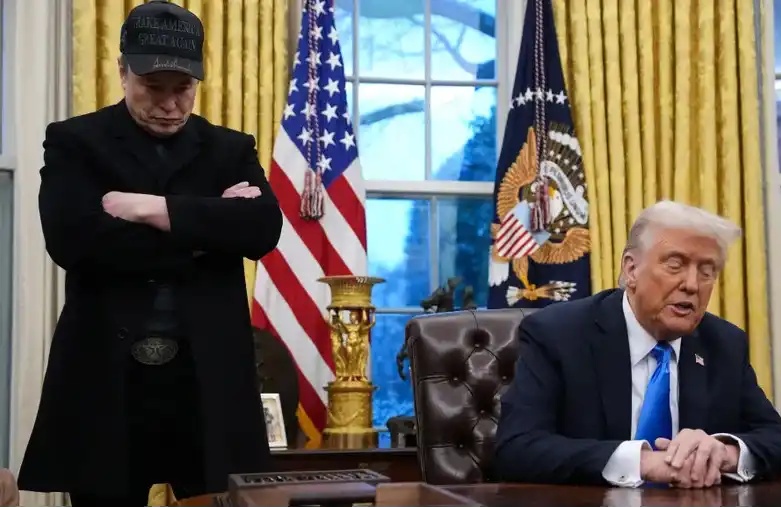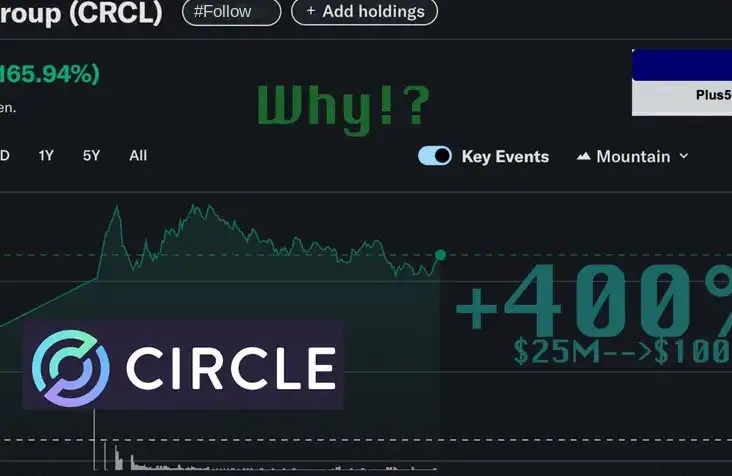When Singapore Starts to Shoo Away the Crypto Crowd
Original Article Title: "As Singapore Begins to Drive Out Cryptocurrency Practitioners"
Original Source: DeepTech TechFlow
The once Web3 paradise Singapore has started to drive people out. On May 30, the Monetary Authority of Singapore (MAS) officially released the "Digital Token Service Providers (DTSP)" final policy guide, with a very firm stance: all cryptocurrency service providers registered or operating in Singapore must cease serving overseas clients by June 30, 2025, if they have not obtained a DTSP license.
This regulation has no transition period, and violators will be punished according to the law. Companies found to be in violation of the law may face fines of up to 250,000 Singapore dollars (200,000 USD) and a maximum of three years in prison. This policy was like a bolt from the blue, causing many Singaporean cryptocurrency practitioners to tremble.
As the Asian Web3 hub, Singapore has always played the role of "regulatory arbitrage." Singapore has previously implemented a "light-touch" regulatory strategy, allowing companies registered in Singapore to freely provide services to overseas clients, with stricter regulatory requirements only for businesses targeting the local market.
Especially when China implemented a comprehensive ban and the U.S. SEC increased enforcement efforts, Singapore timely played the role of a safe haven, providing a secure base for many cryptocurrency exchanges, funds, and projects, leading to waves of cryptocurrency enterprise migration. Even Singapore's sovereign wealth fund, Temasek, has invested in cryptocurrency enterprises such as FTX and Immutable, solidifying Singapore's position as the Asian cryptocurrency hub.
However, this clear regulatory policy has gradually closed the gap of "regulatory arbitrage." According to the DTSP final regulatory response document released by MAS, some of the most stringent key points include:
· Comprehensive Regulation of Cross-Border Business: Regardless of whether the service targets Singapore local or overseas clients, as long as digital token-related business is conducted in Singapore, a DTSP license is required. This directly cuts off the previous "registered in Singapore but only serving overseas clients" regulatory arbitrage route.
· Extremely Broad Definition of Place of Business: MAS defines "place of business" as "any location in Singapore used by the holder of the license for conducting business," even including movable stalls. This definition covers almost all possible business locations, regardless of size.
· Dual Coverage of Individuals and Institutions: The regulatory targets include individuals or partnerships operating in Singapore as well as Singaporean companies conducting digital token services overseas, achieving full coverage of the subjects.
In addition, although MAS has stated that overseas company employees working from home may be accepted, the definition of "employee" is ambiguous. Whether project founders or shareholders are considered employees is entirely at MAS's discretion.
Why Did the Singapore MAS Suddenly Strike Hard? This is not a sudden policy attack by the Monetary Authority of Singapore (MAS) on cryptocurrency companies. As early as 2022, MAS introduced the Financial Services and Markets Act, Part IX of which addresses cryptocurrency regulation. Subsequently, several public consultations and draft consultations were conducted, and the document on May 30 responded to the consultation, elaborating on specific regulatory approaches, laws, notices, and the DTSP Licensing Guide.
According to the consultation document, MAS's core consideration is that "some cryptocurrency companies may harm Singapore's reputation."
The original text states, "Due to the internet-based and cross-border nature of digital token services, Digital Token Service Providers (DTSPs) are more susceptible to money laundering/terrorist financing (ML/TF) risks... The primary risk DTSPs pose to Singapore is reputation risk, as their involvement or misuse for illicit purposes could harm Singapore's reputation."
Perhaps everything traces back to 2022 when Temasek-backed cryptocurrency exchange platform FTX and local crypto fund Three Arrows Capital faced setbacks, severely impacting Singapore's financial reputation. Then-Finance Minister of Singapore Heng Swee Keat (now Prime Minister) publicly stated that "this investment caused reputational damage," following which Temasek imposed salary cuts as penalties on the investment team and senior management.
Under the latest regulations, which cryptocurrency companies will be affected? According to the consultation document, all entities involved in cryptocurrency asset trading must be licensed, including cryptocurrency exchanges, cryptocurrency custody, cryptocurrency transfers, cryptocurrency issuances... As the June 30, 2025 deadline approaches, panic from social media circles and other sources engulfs Singapore's cryptocurrency practitioners, but more prevalent are feelings of bewilderment.
"I wasn't aware of the relevant policies before; my social media feed exploded all of a sudden. Currently, opinions are divided among various parties, so I can only wait and see. If necessary, I can simply leave Singapore and head over to neighboring Malaysia," said project practitioner Adam (pseudonym). A cryptocurrency exchange platform practitioner named Kevin is deeply troubled. "Our company had already prepared to relocate the entire office to Hong Kong, but I don't know the specific timeline. After residing in Singapore for 2 years, he is in the process of applying for Singapore Permanent Residency (PR). Faced with this sudden turn of events, he is filled with regret and reluctance."
Previously, Hong Kong Legislative Council member Wu Chi-wai posted on social media to attract Singaporean crypto industry professionals to relocate to Hong Kong. He stated: "Singapore recently released the 'Digital Token Service Provider License Guide,' introducing new policies for companies, institutions, and individuals engaged in virtual assets. Since Hong Kong's release of the Virtual Asset Declaration in 2022, it has actively welcomed the industry to develop in the city. According to informal statistics, thousands of Web3 companies have already landed in Hong Kong. If you are currently working in the related industry in Singapore and are interested in relocating your headquarters and team to Hong Kong, I am willing to provide assistance. Welcome to develop in Hong Kong!"
Crypto custody platform Cobo's COO and former Legal Head of PAG Group Lily believes that the policy has been overly magnified in terms of panic sentiment. The policy maintains MAS's consistent regulatory style, mainly affecting the Singapore front-end and operational teams of unlicensed trading platforms. It will not affect exempted companies within Singapore like Cobo and licensed companies, nor will it affect institutions whose business scope is outside the licensed regulatory scope.
According to the Singapore MAS official website, companies like COBO, ANTALPHA, CEFFU, and MATRIXPORT are among the exempted list, while companies like BITGO, CIRCLE, COINBASE, GSR, Hashkey, and OKX SG have obtained the DTSP license.
For these licensed and exempted companies, the new policy has actually created a more level playing field, enhanced the reputation value of licensed institutions, and laid the foundation for global expansion. In contrast, as the era of regulatory arbitrage comes to an end, some offshore crypto companies based in Singapore have begun to move to Hong Kong, Dubai, Malaysia, and other places.
Adam believes that the departure of crypto professionals from Singapore is a major trend, and this policy is more about accelerating this process. "The cost of living in Singapore is high, it's boring, and most importantly, there are too few money-making opportunities now. If you want a life, go to Japan; if you want to make money, go to Dubai." Singapore was once known as the "Jerusalem of Crypto Jews," but now its doors are closing, forcing crypto Jews to wander and continue to seek opportunities elsewhere.
Original Article Link
Welcome to join the official BlockBeats community:
Telegram Subscription Group: https://t.me/theblockbeats
Telegram Discussion Group: https://t.me/BlockBeats_App
Official Twitter Account: https://twitter.com/BlockBeatsAsia
 Forum
Forum OPRR
OPRR Finance
Finance
 Specials
Specials
 On-chain Eco
On-chain Eco
 Entry
Entry
 Podcasts
Podcasts
 Data
Data


 Summarized by AI
Summarized by AI







